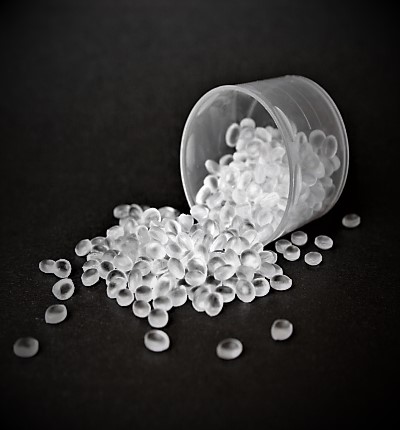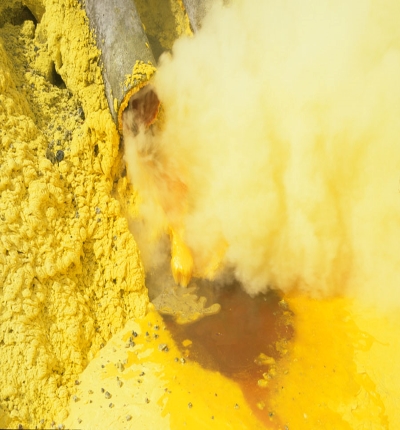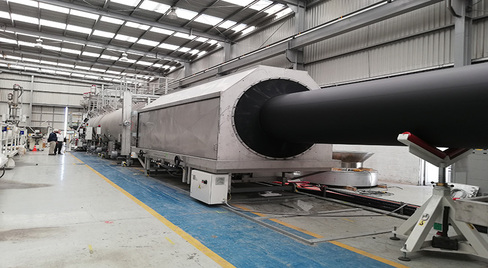HMEL is a public-private partnership joint venture between the fortune 500 company, Hindustan Petroleum Corporation Limited (HPCL, a Government of India enterprise) and Mittal Energy Investment Pvt Ltd., Singapore (a Lakshmi N Mittal company). HMEL produces an extensive range of Polypropylene (PP) and other petroleum refinery products.
Buzzword
Energising a Brighter Tomorrow!
Instamine invites you to learn more about HPCL-Mittal Energy Limited (HMEL) !!
Formed in 2007 as a public-private partnership joint venture, HMEL’s production assets are considered the single most significant investment of US $ 5 billion in any sector in the state of Punjab, India. Currently, HMEL is operating with 11.3 million metric tonnes per annum (MMTPA) best in a class complex refinery, 165 MW captive power plant, 1017 KM crude pipeline sized up to 18 MMT, 840,000 KL crude oil terminal, and 467 Kilo Tonne (KT) production capacity of Polypropylene unit (PPU).
Other than Polypropylene, HMEL refinery produces a range of high-value environment-friendly petroleum products such as Motor Spirit, High-speed diesel, Superior Kerosene Oil, Aviation Turbine Fuel, Liquefied Petroleum Gas, Naphtha, PET coke, Sulphur, Bitumen to cater to both the domestic and commercial demand of the country.
HMEL has several awards and accolades in their feathers like “Five-star rating in PSM audit by the British safety council, Great place to work, ISO 9001:2015, ISO 14001:2015, ISO 45001:2018, Excellence in energy usage by FICCI, Digital and Technology-enabled company award, Shield award 2019, Refinery of the year and many more which shows their credibility in the industry.
Under the brilliant guidance of Mr. Prabh Das, Managing Director of HMEL, and Mr. Aditya Mittal, Chief Executive Officer of Arcelor Mittal, HMEL recorded crude output of 12.24 MMT. It achieved consolidated total revenue of Rs. 58,752.30 crores (Rs 587523 million) in the year 2019-20.
HMEL Products

Polypropylene
HMEL’s Polypropylene Unit (PPU), with a capacity of 467 Kilo Tonne (KT), produces the entire range of Homo-Polymer Polypropylene (PP), using the Novolen® gas-phase polypropylene process. The PPU is integrated with the refinery, ensuring feedstock security at all times and uninterrupted supply to customers of all application segments.
Learn morePetcoke
HMEL refinery’s state of the art Delayed Coker Unit (DCU) produces high sulphur Petroleum Coke (Pet Coke) which is the carbonaceous solid residue remaining after the distillation of petroleum materials. Pet coke has more than twice the calorific value of coal and is widely used as an alternative to coal in power plants, cement kilns and blast furnaces.
Learn more

Sulphur
HMEL’s Sulphur Recovery Unit (SRU) produces Sulphur in powder and lump form. Maximum usage of Sulphur is for production of Sulphuric Acid which is widely used as a raw material for producing phosphatic and nitrogenous fertilizers. In raw form Sulphur is also used in explosives, sugar industry, match sticks etc.
Learn moreSpeciality Products
HMEL’s special products portfolio includes Premium Grade Mineral Turpentine Oil (MTO) that meets the stringent norms set by major paint manufacturers and Food Grade Hexane that meet the requirements of sensitive industries such as Pharmaceuticals.
Learn more

Fly Ash
Fly Ash is the residue left after combustion of Pet Coke in HMEL refinery's captive power plant. Due to its cementitious properties, it is excellent for manufacture of cement and bricks. India is the second largest brick maker in the world after China. Usage of Fly Ash in making bricks, compared to traditional clay bricks manufacture, reduces pollution.
Learn morePolypropylene
HMEL’s Polypropylene Unit (PPU), with a capacity of 467 Kilo Tonne (KT), produces the entire range of Homo-Polymer Polypropylene (PP), using the Novolen® gas-phase polypropylene process. The PPU is integrated with the refinery, ensuring feedstock security at all times and uninterrupted supply to customers of all application segments.
HMEL is utilising Novolen® gas-phase polypropylene process using Ziegler-Natta catalysts for the production of a full range of commodity and performance products that meet the requirements of even the most demanding applications. Novolen’s unique Versatile Reactor Concept (VRC) utilizes two vertical, mechanically stirred bed, gas-phase reactors, with which it is possible to achieve a broad portfolio of products. Homopolymers can be manufactured either in a single reactor or in parallel operation of two reactors depending on the requirement. Small reactor volumes allow rapid grade changes to meet diverse customer requirements.
Polypropylene produces in HMEL covering a broad range of industries requirements for film application, Moulding, fibre & filaments, Thermoforming, Sheet & Raffia applications.
Petcoke
HMEL refinery’s state-of-the-art Delayed Coker Unit (DCU) produces high-sulphur Petroleum Coke (PET Coke) which is the carbonaceous solid residue remaining after the distillation of petroleum materials. Petcoke has more than twice the calorific value of coal and is widely used as an alternative to coal in power plants, cement kilns and blast furnaces.
Coke is used as a fuel and as a reducing agent in smelting iron ore in a blast furnace. Any coal-using industry can be a potential consumer of PET coke. Major industrial segments using Fuel grade Petcoke in India are:
Cement Kilns
Thermal Power Plants
Brick Kilns
Lime Kilns
Cement Kilns
Thermal Power Plants
Sulphur
HMEL’s Sulphur Recovery Unit (SRU) produces sulphur in powder and lump form. The maximum usage of Sulphur is for the production of Sulphuric Acid which is widely used as a raw material for producing phosphatic and nitrogenous fertilizers. In raw form, sulphur is also used in explosives, the sugar industry, match sticks etc.
HMEL’s Sulphur characteristics guidance values of assay and impurities as per BIS standard IS: 6655-1972 are as:
Assay (dry basis): 99 per cent by mass
Ash: 0.25 per cent by mass
Carbon: 0.1 to 1.0 Percentage by mass
Colour: Bright whitish-yellow
Speciality Products
HMEL’s special products portfolio includes Premium Grade Mineral Turpentine Oil (MTO) that meets the stringent norms set by major paint manufacturers and food-grade Hexane that meet the requirements of sensitive industries such as Pharmaceuticals.
Fly Ash
Fly Ash is the residue left after the combustion of Pet Coke in the HMEL refinery's captive power plant. Due to its cementitious properties, it is excellent for the manufacture of cement and bricks. India is the second largest brick maker in the world after China. The usage of Fly Ash in making bricks, compared to traditional clay bricks manufacture, reduces pollution.
Typical properties of Fly ash contains:
Appearance: Grey fine powder
Ash at 10000C: 90-98%
CaSO4: 35-45%
CaO: 45-55%
Browse Products by Industry
Browse Products by Processing Technology
Injection Molding
view 26 productsExtrusion
view 17 productsPipe Extrusion
view 06 products- 83 products
- 1 Brands
Documents
Learn more about HPCL- Mittal Energy Ltd (HMEL) products and browse available documents.
Browse Documents
Address
HPCL-Mittal Energy Limited INOX Towers, Sector 16 A, Plot No. 17 Noida - 201301 (U.P) India.





